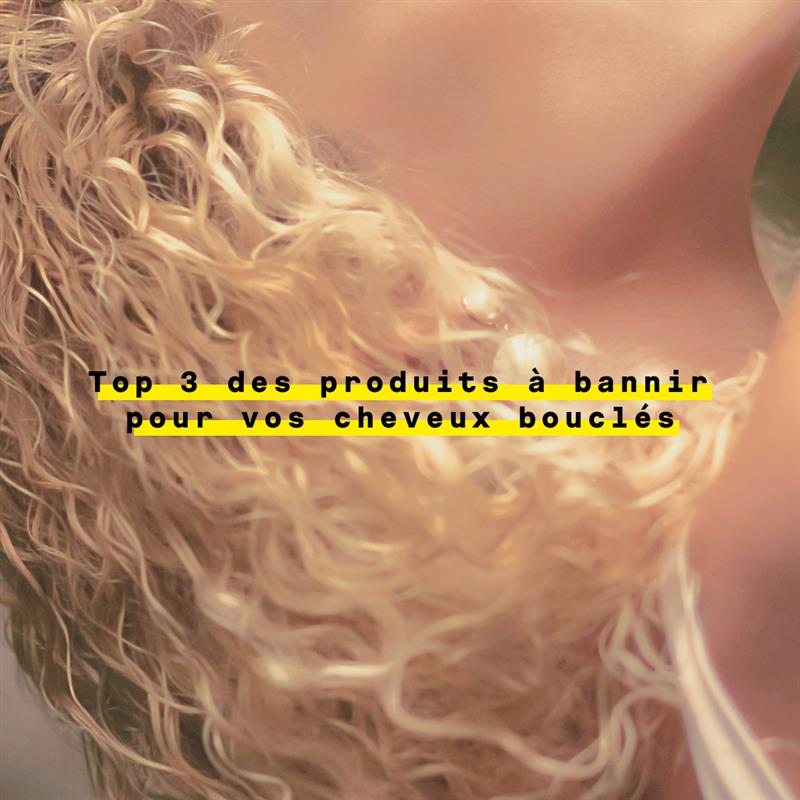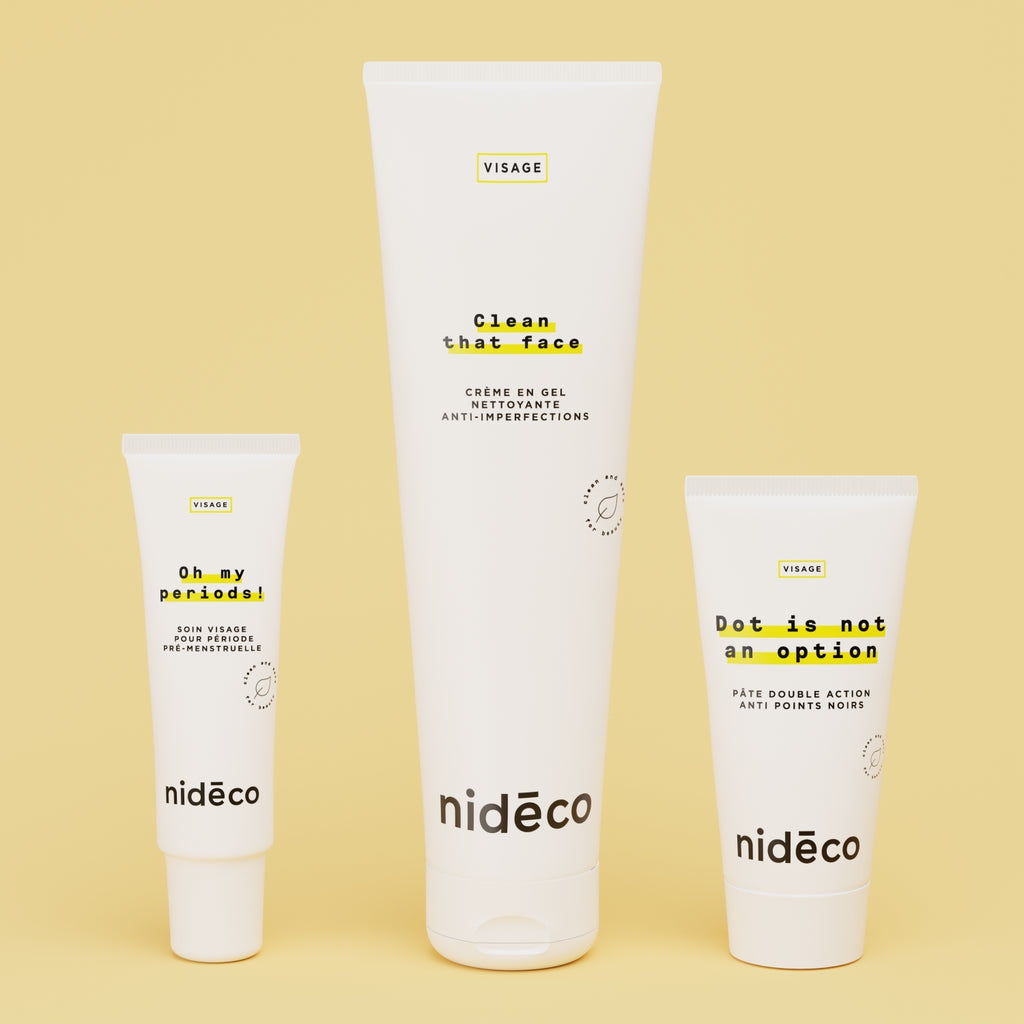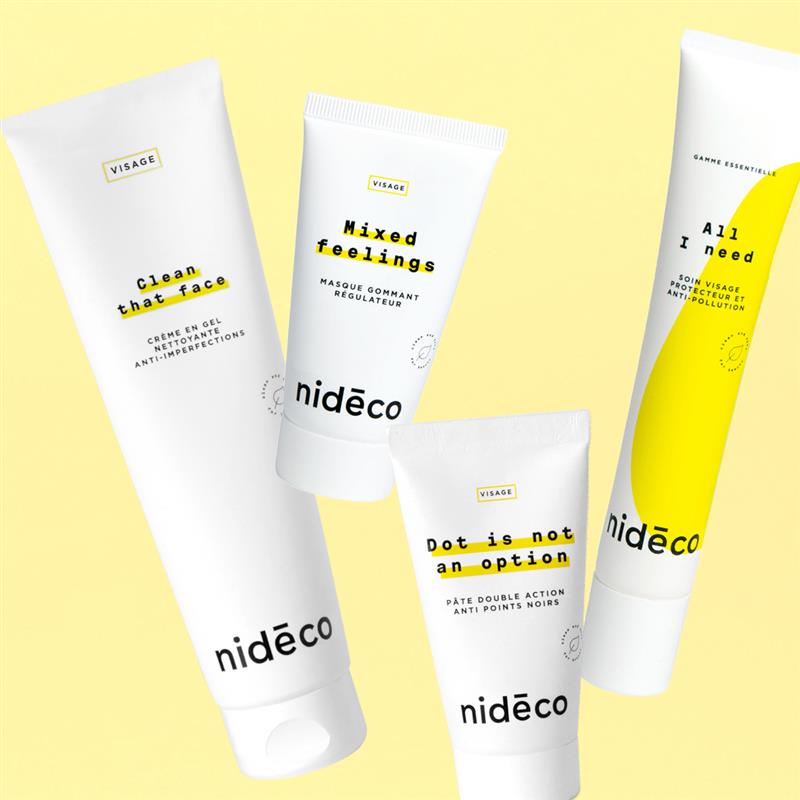Curly hair: ingredients to avoid

👩🦱 Curly hair has very specific needs. You've probably heard the joke: "Hello, do you have 45 minutes to spare? I just need to detangle my hair!" This phrase perfectly sums up the reality of many people with curly hair. The choice of hair care products can make or break this routine. So it's crucial to check the composition of the products you use to avoid harmful ingredients. This article focuses on ingredients to avoid for curly hair, and suggests natural solutions to maintain and enhance your curls.
The specificity of curly hair
👉 Curly hair is characterized by more or less tight "S"-shaped curls. These curls can be tight springs or wider, relaxed waves. The specificity of curly hair lies in its fragile, dry nature. It can present ill-defined curls, uncontrolled volume (either flattened or too voluminous) and often dry locks. Because of its structure, curly hair must not be damaged by unsuitable products, overly abrupt gestures or overly frequent routines.
Ingredients to avoid for curly hair
Silicones
👉 Silicones are commonly used in hair products for their ability to smooth and detangle hair. They coat each strand of hair with a protective layer, giving it a smooth, shiny appearance. However, this layer can also prevent moisture from penetrating the hair, making it even drier in the long term. Silicones can build up on hair, weighing it down, slowing growth and causing dandruff. Hair then becomes greasy at the roots and dry at the ends.
❌Siliconesto avoid include dimethicone, cyclopentasiloxane and cyclohexasiloxane. To preserve the health of your curls, it's best to use products that don't contain them, favoring natural ingredients that won't suffocate hair.
Sulfates
Sulfates, such as sodium lauryl sulfate (SLS) and sodium laureth sulfate (SLES), are powerful cleansing agents found in many shampoos. They create an abundant lather that may seem effective for deep-cleansing hair. However, these chemicals, similar to those found in household detergents, can be very aggressive.
❌ Sulfates remove not only dirt but also the scalp's natural oils, leaving curly hair even drier and more fragile. This excessive removal can lead to scalp irritation and a feeling of stripped hair. We therefore recommend sulfate-free shampoos, which gently cleanse while respecting the natural balance of the scalp and hair.
Drying alcohols
Certain alcohols, such as isopropanol and denatured alcohol, are often found in styling products. They are used to speed up product drying, but have a drying effect on hair and scalp. These short alcohols can strip hair of moisture, making it even drier and more fragile, and irritate the scalp, causing itching and inflammation.
❌ To avoid these harmful effects, it's advisable to look for products containing fatty alcohols, such as cetyl alcohol and stearyl alcohol, which are moisturizing and beneficial for hair. These fatty alcohols help soften and nourish curly hair without drying it out.
Natural solutions for curly hair
Hydration
💧Moisturizing is essential for curly hair. Use products containing natural moisturizing ingredients like aloe vera, coconut oil and shea butter. These ingredients help retain moisture and deeply nourish hair, making it softer and more supple. Adopt a regular moisturizing routine to keep your curls healthy.
Washing
👉 Wash your curly hair less frequently to avoid drying it out. A weekly or twice-weekly wash is often enough. Use sulfate-free shampoos for gentle cleansing and follow with a moisturizing conditioner to detangle and nourish your curls. Co-washing (using a cleansing conditioner) can also be a good option for curly hair, as it cleanses the hair without drying it out.
Packaging
Using a deep hair mask once a week can do wonders for curly hair. Choose a mask formulated with natural, moisturizing ingredients to intensely nourish your hair and prevent breakage. Honey, avocado and yogurt-based masks can also be very beneficial for curly hair.
Styling
👩🦱 When styling curly hair, use styling products free of silicones and drying alcohols. Look for gels, mousses and styling creams that contain natural, moisturizing ingredients. Avoid handling your hair when it's dry, as it's more likely to break. Use light oils like argan oil or jojoba oil to seal in moisture and add shine to your curls.
Drying
Let your curly hair air-dry as much as possible. If you must use a hair dryer, use a diffuser to distribute the heat evenly and minimize frizz. Avoid rubbing your hair with a towel; instead, gently press it with a microfiber towel to remove excess water without causing frizz.
Detangling
Detangle your hair when it's wet and coated with conditioner. Use a wide-tooth comb or your fingers to gently detangle knots. Avoid using brushes, which can break curls and cause frizz. To avoid tangles, detangle your hair in the shower while it's still wet and slippery with conditioner.
Protection
Protect your curly hair at night by using a satin or silk pillowcase, or wrapping your hair in a satin scarf. This reduces friction and frizz, and helps keep your hair moisturized. Sleeping with your hair in a protective hairstyle, such as a braid or loose bun, can also help prevent tangles and breakage.
Adopt a natural routine with You're So Curly
😍 For those looking for a natural and effective solution for their curly hair, spray You're So Curly is an ideal option. Designed by Arnaud, this moisturizing and restructuring spray is specially formulated to meet the needs of curly hair. Its fluid cream texture, with no greasy or dry effects, deeply moisturizes and restructures curls without weighing them down.
You're So Curly is made with a maximum of natural ingredients, respectful of the planet and your hair. It contains nourishing oils and botanical extracts that help define curls, reduce frizz and maintain moisture throughout the day. By using products like You're So Curly, you can preserve the health of your curls while avoiding harmful ingredients.
Conclusion
👉 Caring for curly hair requires careful attention to the ingredients in hair care products. By avoiding silicones, sulfates and drying alcohols, and adopting natural solutions and adapted care routines, you can maintain the health and beauty of your curls. Curly hair needs gentle, moisturizing care to stay shiny, defined and healthy. By listening to your hair's specific needs and choosing the right products, you can achieve beautiful, long-lasting results. Remember that every curl is unique, so take the time to discover what works best for your hair and celebrate the natural beauty of your curls.































